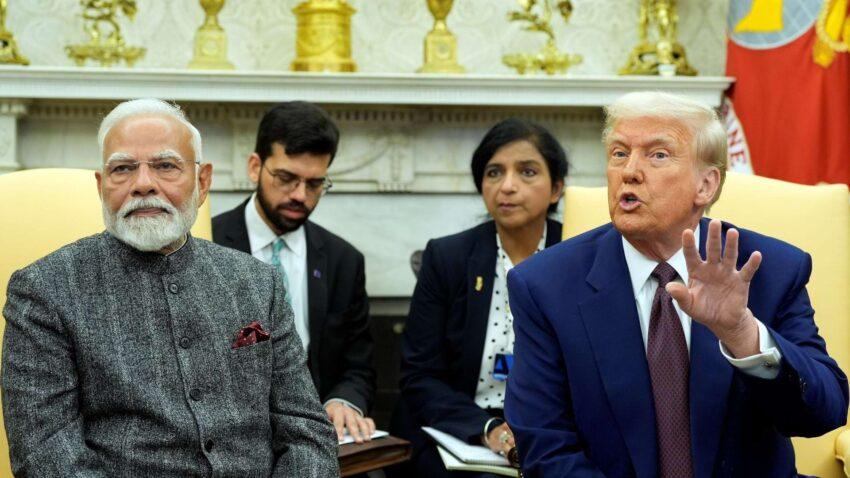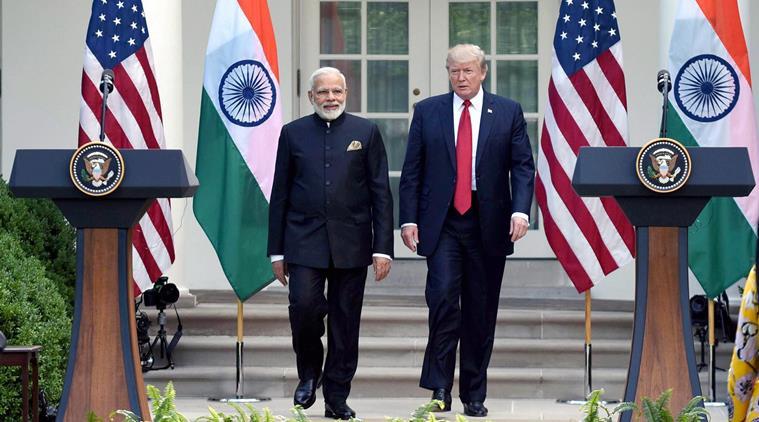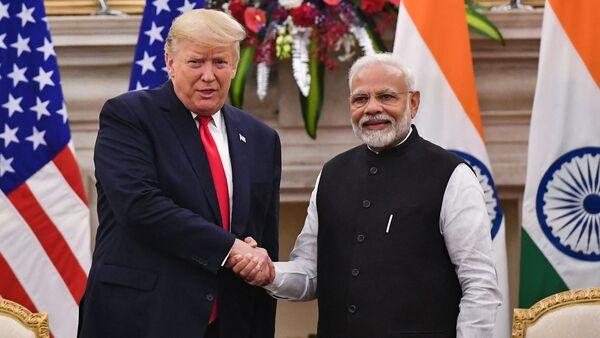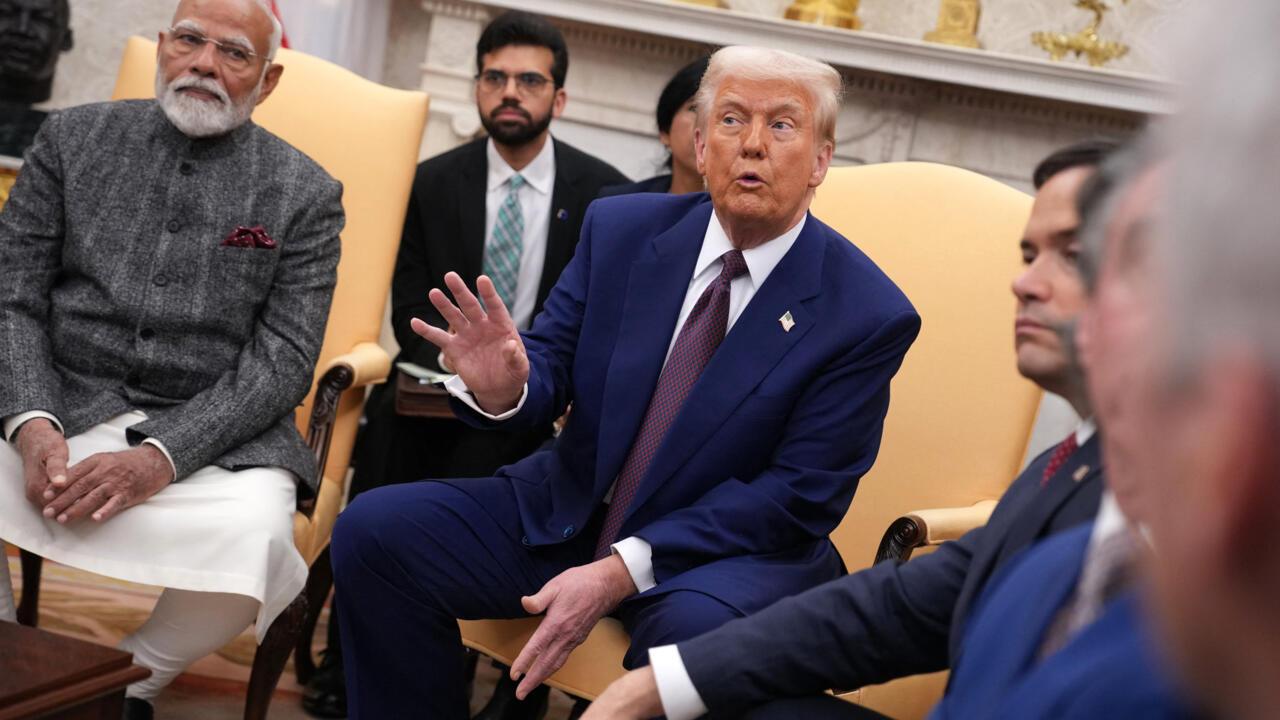Impact of New Tariffs on the US-India Economic Relationship
the recent imposition of new tariffs by the United states on goods imported from India has sent shockwaves through their once robust economic partnership. This abrupt shift comes at a time when geopolitical tensions are already fraying the relationship, especially in the wake of India’s strong ties with Russia. As india continues to purchase oil from Russia amidst global sanctions, the U.S. has responded with a series of punitive tariffs aimed at discouraging this cooperation. The fallout from these measures threatens to escalate trade disputes, potentially crippling key sectors of the Indian economy and affecting millions of jobs.
Among the areas most affected are industries such as textiles, pharmaceuticals, and data technology. Business leaders in India have voiced concerns about the following aspects:
- Increased costs: The new tariffs could lead to higher prices for American consumers and reduced demand for Indian exports.
- Supply chain disruptions: Companies reliant on seamless trade may face significant hurdles in operations and logistics.
- Investment hesitancy: American companies might reconsider their investments in India if the trade environment remains antagonistic.
This increasingly antagonistic trade environment poses a serious question for policymakers in both nations: can they find a path back to cooperation, or has this clash over tariffs marked a definitive downturn in their bilateral economic relationship?

Analysis of Strategic Alliances Amidst Global Energy Politics
The recent imposition of tariffs on Indian oil imports by the United States underscores a pivotal moment in the geopolitical landscape, particularly as it pertains to energy politics and strategic alliances. Traditionally, the relationship between the Trump administration and Modi’s India has been characterized by mutual interests-ranging from defense cooperation to economic partnerships. Though, the introduction of new tariffs signals a shift towards a more protectionist stance, that may alienate India at a time when its energy security is increasingly tied to Russian oil supplies. Factors driving this friction include:
- Escalating Tariffs: The U.S. tariffs are a direct challenge to India’s strategic energy sourcing, putting pressure on Modi to reconsider his country’s energy alliances.
- shifting alliances: As countries like India navigate their relationships with both the U.S. and Russia, the balancing act becomes increasingly complex.
- Global Energy Dynamics: The interplay of energy supply and demand on a global scale complicates bilateral relations, forcing nations to rethink long-standing partnerships.
Considering this development, the fragility of international alliances in the context of energy policies becomes evident.Modi’s administration must now reevaluate its reliance on russian oil amidst growing economic pressures from the West. This new political terrain challenges India to forge strategic pathways that enhance its energy security without compromising its geopolitical stance. In a world where energy resources are intertwined with national security, the repercussions of such tariffs not only impact trade but also reshape the strategic calculus of alliances that transcend borders. Observers will be closely watching how India navigates these turbulent waters in maintaining its sovereign energy needs while addressing external pressures from one of its largest allies.

Response Strategies for India to Mitigate Economic Fallout
In light of the escalating economic tensions stemming from new tariffs imposed by the United States on Indian imports, particularly in response to India’s continued trade with Russia, strategic responses are essential to cushion the economic fallout. Policymakers must consider diversifying trade partnerships beyond conventional allies, thereby reducing dependence on any single market. Building stronger ties with emerging economies in Southeast Asia and Africa could mitigate the impact of these tariffs and open new avenues for trade. Additionally, India should focus on enhancing domestic production capabilities, which would not only stimulate growth but also lessen reliance on foreign imports that may be subject to sudden tariffs.
Moreover, enhancing bilateral and multilateral negotiations could prove vital in addressing trade imbalances. Engaging with organizations like the G20 and BRICS to advocate for a more equitable trade framework may yield benefits in softening the effects of unilateral tariffs. India should also consider implementing temporary support measures for affected sectors, including tax reliefs or financial aid for industries hit hardest by the tariffs.In this complex global landscape, fostering innovation and investing in sectors like renewable energy and technology can not only shield the economy from immediate repercussions but also lay the groundwork for sustainable growth moving forward.

Future Prospects for Diplomatic Engagement Between Washington and New Delhi
The recent imposition of tariffs by the United States on Indian imports, especially in response to India’s ongoing trade with Russia, has considerably strained bilateral relations between Washington and New Delhi. This developing geopolitical landscape raises questions about the future of diplomatic engagement between the two nations.Analysts are closely monitoring the ramifications of these tariffs, anticipating potential retaliatory measures from India that could exacerbate tensions further. As both countries grapple with their competing national interests, the elasticity of their alliance will be tested.
Looking ahead, a few critical factors will influence the trajectory of U.S.-India relations:
- Global Supply chains: The need for resilient supply chains may prompt U.S. businesses to seek deeper collaborations with Indian firms.
- Shared Security Concerns: Both nations face mounting threats from rising regional aggressors, which could foster a renewed commitment to strategic dialogues.
- Trade Negotiations: Future discussions centered on trade policies could serve as a platform for negotiation, potentially easing tensions over tariffs.
- Public Perception: The domestic political climates in both countries might impact leaders’ willingness to engage diplomatically.
Ultimately, while the current situation may seem bleak, there remains a glimmer of hope that a pragmatic approach to economic ties and regional cooperation could pave the way for a more constructive dialog in the near future.
